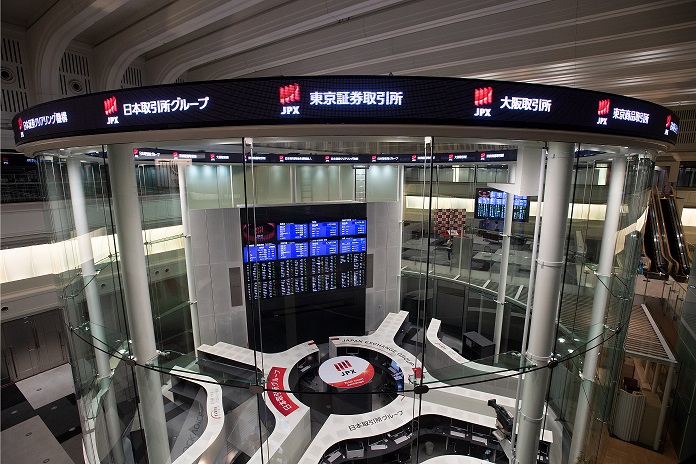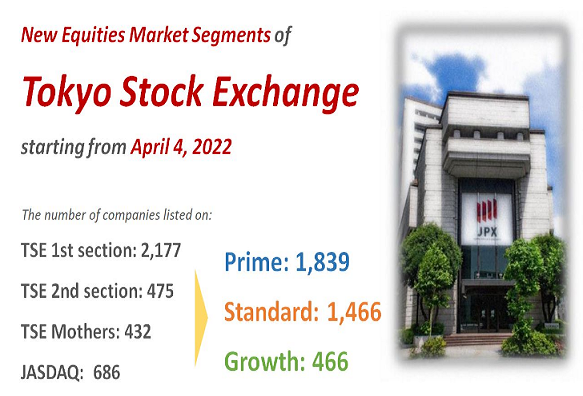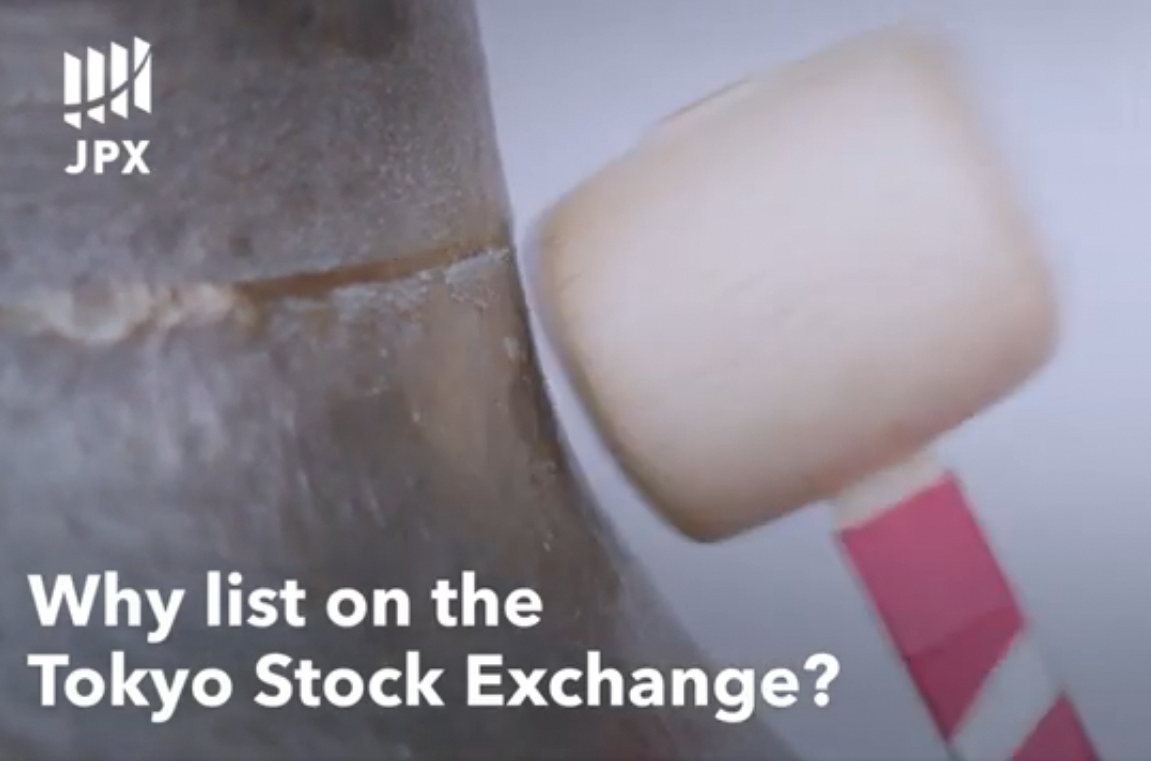TSE Cash Markets
16% of individual shareholders, halved in 50 years, Key to promoting investment by young people

The ratio of individual shareholders in Japan is declining. According to the shareholder distribution survey for the fiscal year 2021 released by the Tokyo Stock Exchange on 7th, the percentage of shares held by individuals was 16.6% in value terms, down by half from 50 years ago. Raising the level of individual investors has been a challenge for Japan since the end of World War II. With the question of "saving to investing" being asked, it will be essential to establish a mechanism to encourage young people to invest, such as by revamping the NISA (National Institute of Social Security Administration).
In Japan, the postwar "securities democratization movement," which encouraged individuals to own shares held by zaibatsu and the government, resulted in individual shareholders owning nearly 40% of the stock in the fiscal year 1970. However, later, companies accelerated cross-shareholding with banks and other entities in order to protect their management rights from foreign capital. With the collapse of the bubble economy, the growth expectations of Japanese companies collapsed, and the individual ratio has gradually declined since the fiscal year 2011, and has remained below 20% in recent years.
The number of individual shareholders increased for the eighth consecutive year to 64.6 million, but this figure is a simple aggregate of the total number of shareholders in each listed company. The reality is said to be in the 14 million person range, which is only 1 in 9 of the population. In South Korea, the calculation is one in four. In the U.S., individuals own about 40% of stocks on a value basis. The ratio of stocks and investment trusts to household financial assets is also lower in Japan than in the West.
Behind this is the aging of the population. Japanese individuals who own stocks are disproportionately elderly, with those aged 60 or older owning 67% of stocks by value. As the elderly become aware of their inheritance, they often sell their holdings to cash out and purchase real estate. The background is the different inheritance tax valuation systems for stocks and real estate.
While listed stocks are valued at their market value on the stock exchange, real estate is valued based on the roadside land price, which is approximately 80% of the market value. "The primary concern of the wealthy is tax savings. Brokerage firms that sell stocks and other securities companies are also encouraging seniors to convert to real estate"(Inheritance consultant Koji Terada).
On the other hand, what about the youth segment? Individuals under the age of 30 hold only 1% of the total shares, but their appetite for investment is strong. Rakuten Securities has a slightly under-70% of new account openers in their 20s and 30s. Monex has the largest number of accounts opened by 30-somethings. "Demand is growing for steady, accumulating investments" (Monex) due to increasing uncertainty about the future, including the lack of wage increases.
These Japanese individuals are turning to foreign stocks. The net inflow of public offering investment trusts (excluding listed investment trusts) from January to June was the fourth largest on record at approximately 4 trillion yen, and by asset, investment trusts managed by foreign equities saw inflows of 4.2 trillion yen. The largest inflows in June were into investment trusts linked to the US S&P;P500 stock index.
Interest in stocks, especially foreign stocks, is strong among young people and others. Nevertheless, the reason why it is difficult to increase the number of individual investors in Japanese stocks, especially among young people, is due to barriers such as the minimum trading unit. For example, a trading unit of Fast Retailing at 68,000 yen per share is 100 shares, which can only be purchased with a minimum of 6.8 million yen. US shares can be purchased in units of one share, with the most recent Apple share costing about $140 per share (about 19,000 yen).
More and more companies in Japan are making it easier for investors to buy their shares by splitting them. Toyota Motor split one share into five shares, effective at the end of September 2021, and the minimum amount required for investment was reduced by one-fifth to approximately 200,000 yen. As a result, there were 745,000 individual shareholders at the end of March 2022, a 70% increase from the previous year. It is possible for companies to attract private money if they move on their own.
NISA, which eliminates taxes on gains from the sale of stocks and dividends, is also open to review. The tax exemption limit for NISA is 1.2 million yen, which differs from the 3.2 million yen for the UK ISA used as a reference. In contrast to NISAs, which limit the investment period, ISAs do not have a time limit. Prime Minister Fumio Kishida has mentioned the expansion of NISA. The focus will be on whether the system can be revised to make it even easier for individuals to purchase stocks.
In order to broaden the base of individuals, not only will Japanese companies need to grow on their own, but also a broad discussion will be necessary, including the tax system, trading system, and financial education.
The English translations provided through this service are the result of automatic and mechanical translation of contents written in Japanese and created by Nikkei or licensed by a third party, by an automatic translation system provided by a third party after certain processing of the contents by Nikkei. Nikkei disclaims all warranties, express or implied, related to the English translations, including any warranty of accuracy, reliability, validity and fitness for a particular purpose. Users shall use this service with the full understanding that it employs an automatic translation system that automatically and mechanically recognizes and analyzes information and outputs the results.
Related links
The English translations provided through this service are the result of automatic and mechanical translation of contents written in Japanese and created by Nikkei or licensed by a third party, by an automatic translation system provided by a third party after certain processing of the contents by Nikkei. Nikkei disclaims all warranties, express or implied, related to the English translations, including any warranty of accuracy, reliability, validity and fitness for a particular purpose. Users shall use this service with the full understanding that it employs an automatic translation system that automatically and mechanically recognizes and analyzes information and outputs the results.
The English translations provided through this service are the result of automatic and mechanical translation of contents written in Japanese and created by Nikkei or licensed by a third party, by an automatic translation system provided by a third party after certain processing of the contents by Nikkei. Nikkei disclaims all warranties, express or implied, related to the English translations, including any warranty of accuracy, reliability, validity and fitness for a particular purpose. Users shall use this service with the full understanding that it employs an automatic translation system that automatically and mechanically recognizes and analyzes information and outputs the results.






